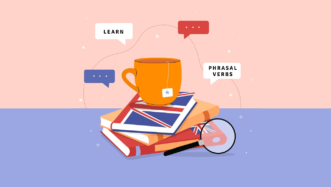LESSON OVERVIEW
Our ‘getting to know you’ lesson is designed for ESL teachers to use in their first lesson with new students. This lesson plan encourages students to introduce themselves, practice vocabulary, grammar, and reading comprehension while engaging in discussions and speaking activities.
WARM-UP & READING ACTIVITIES
Begin the ‘getting to know you’ lesson with a warm-up activity where students share personal information using selected verbs (e.g., have, speak, work). Then, they look at three photos and they name five objects in each of them., describe the actions of the people, and discuss their own experience with the activities.Then, they say what the people in the photos are doing and why they are doing it. Students also share how often they do the activities and talk about other things they do in their free time.
Introduce three short texts for students to read, prompting them to choose correct words or phrases and match the texts to the corresponding photos from the previous task. Encourage students to find and discuss new vocabulary. Finally, have students answer questions about their experience with English. They also look at some activities they might do in an English lesson (e.g. doing grammar tasks, watching videos, talking about your interests, etc.) and explain which ones they like or dislike and why.
SPEAKING ACTIVITIES
In this section of the ‘getting to know you’ lesson, students complete sentences that are true for them, with the teacher asking follow-up questions to encourage them to give some details. Students then examine ten objects and choose three they believe are most important in everyday life, explaining their choices and discussing the importance of the remaining objects.
For the final task, students create ‘getting to know you’ questions by arranging words in the correct order. They then partner up and ask and answer the questions. As an additional homework assignment, students can describe a unique object they have at home.
Other ESL Brains first lesson worksheets:
- Me, my work and I – first Business English lesson plan (B1/B2)
- Stay interested, stay motivated – first lesson with new students (B2/C1)
Subscribe to unlock these and many other Standalone lesson lesson plans with the Unlimited planWORKSHEETS













Please, we need more lessons for A1-A2 students. Thank you!
Hi, Liliane! There are a lot of A2 lessons to choose from (here, in case you missed them), and more on the way. We don’t, however, publish A1 materials.
Thank you for such a nice and well structured lesson. It helps the teacher understand what a student can already do or can’t do yet. I have just used it with a new student and it worked so well… it felt like “taking a picture” of his current abilities andit helped me establish a starting point for future work. Great job.
That’s fantastic, thank you!